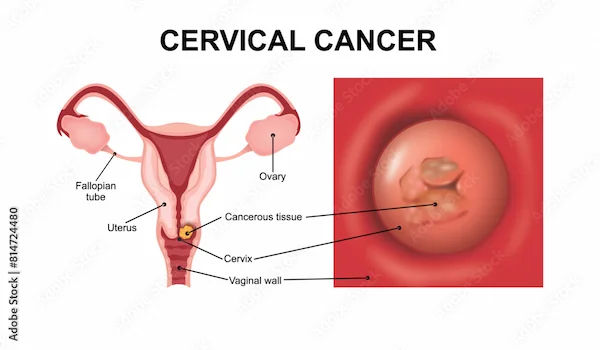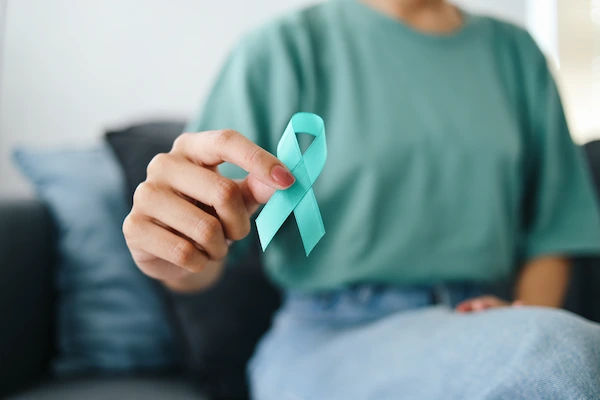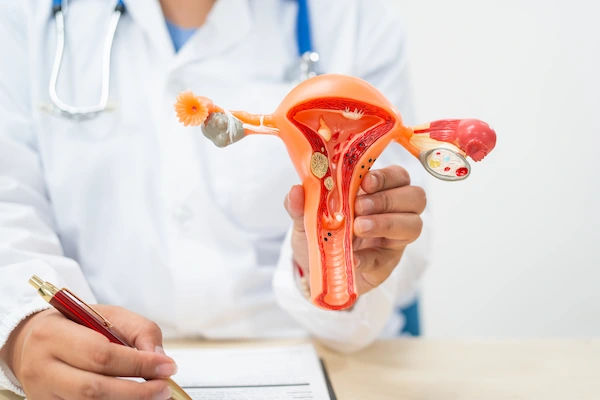Cervical Cancer Awareness Month Overview
Get a comprehensive overview of Cervical Cancer Awareness Month (January). Learn about its significance, key messages on prevention through vaccination and screening, early detection, and support for those affected.

Written by Dr. Dhankecha Mayank Dineshbhai
Reviewed by Dr. Siri Nallapu MBBS
Last updated on 21st Aug, 2025

Introduction
January is Cervical Cancer Awareness Month, a time dedicated to spreading knowledge about cervical cancer, its prevention, and early detection. This month serves as a reminder for women to prioritize their health and take proactive steps to protect themselves.
Cervical cancer is one of the most preventable and treatable cancers if detected early. Yet, many women remain unaware of the risks, symptoms, and ways to reduce their chances of developing this disease. This article will guide you through everything you need to know—from causes and symptoms to prevention and treatment.
What Is Cervical Cancer?
Cervical cancer occurs when abnormal cells in the cervix (the lower part of the uterus that connects to the vagina) grow uncontrollably. These cells can eventually form a tumor and, if left untreated, spread to other parts of the body.
What Causes Cervical Cancer?
Most cervical cancers (over 90%) are caused by persistent infection with high-risk types of the Human Papillomavirus (HPV). HPV is a common sexually transmitted infection, but not all HPV infections lead to cancer. Other risk factors include:
Smoking (weakens the immune system, making it harder to fight HPV)
A weakened immune system (due to conditions like HIV or longterm steroid use)
Long term use of birth control pills (more than 5 years)
Multiple fullterm pregnancies
Family history of cervical cancer
Health Topic Carousel:
Doctor Speciality: Physician
Text:Consult Top Physician
Symptoms of Cervical Cancer
In its early stages, cervical cancer often shows no symptoms, which is why regular screenings are crucial. As the disease progresses, symptoms may include:
Abnormal vaginal bleeding (after sex, between periods, or after menopause)
Unusual vaginal discharge (watery, bloody, or foulsmelling)
Pelvic pain (especially during intercourse)
Pain during urination
Unexplained weight loss or fatigue
If you experience any of these symptoms, consult a doctor immediately. Early detection can save lives.
How Is Cervical Cancer Diagnosed?
Two key tests help in early detection:
Pap Smear (Pap Test) – Checks for abnormal cells in the cervix.
HPV Test – Detects high-risk HPV strains that may lead to cancer.
Women aged 2165 should get regular screenings as recommended by their doctor.
Preventing Cervical Cancer
The good news? Cervical cancer is largely preventable! Here’s how you can reduce your risk:
1. Get Vaccinated Against HPV
The HPV vaccine is highly effective in preventing infections from cancer causing HPV types. It is recommended for:
Girls and boys aged 9-14 (two doses)
Women and men up to age 26 (if not vaccinated earlier)
Some adults up to age 45 (consult your doctor)
2. Regular Screenings (Pap & HPV Tests)
Ages 21-29: Pap test every 3 years.
Ages 30-65: Pap + HPV test every 5 years (or Pap alone every 3 years).
After 65: Discuss with your doctor if screenings are still needed.
3. Practice Safe Sex
Using condoms reduces HPV transmission, though it doesn’t eliminate the risk entirely.
4. Quit Smoking
Smoking increases cervical cancer risk—seek help to quit if needed.
5. Maintain a Healthy Immune System
Eat a balanced diet, exercise, and manage stress to keep your immune system strong.
Treatment Options for Cervical Cancer
If diagnosed early, cervical cancer is highly treatable. Treatment depends on the stage and may include:
Surgery (removal of cancerous tissue)
Radiation therapy (targeting cancer cells with high energy rays)
Chemotherapy (drugs to kill cancer cells)
Targeted therapy/Immunotherapy (for advanced cases)
Take Action Today!
This Cervical Cancer Awareness Month, take charge of your health by:
Scheduling a Pap smear or HPV test if you’re due for one.
Getting vaccinated if you’re eligible.
Educating friends and family about prevention.
Need Help? Book a Consultation Today!
Early detection saves lives. If you have concerns or need a screening, Apollo 24|7 makes it easy to book a consultation or test from the comfort of your home.
Call now or visit Apollo 24|7 to schedule your appointment.
Final Thoughts
Cervical cancer is preventable, and awareness is the first step toward protection. By staying informed, getting regular checkups, and making healthy lifestyle choices, you can significantly reduce your risk.
Spread the word—your health matters!
Health Topic Carousel:
Doctor Speciality: Physician
Text:Consult Top Physician




